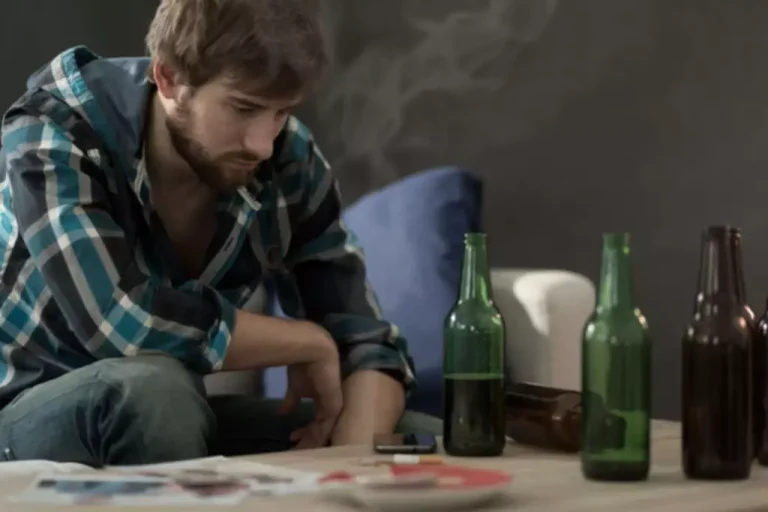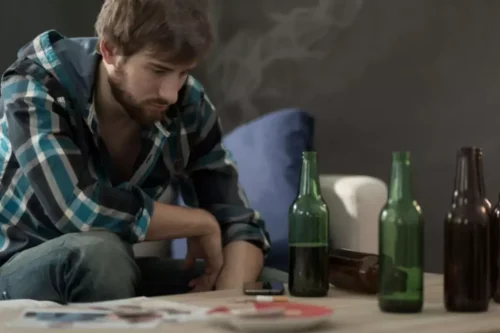
Absolutely no-one finds recovery from substance addiction thinking the latter. Viewed at with reference to our topic of addiction relapse, that’s a huge number of people potentially going through this same event as you. When such a significant event occurs, it is not just the event itself that directly impacts us. When we are talking about relapse, our reaction can make a world of difference.
- While the road to recovery never ends, it does become more familiar as you practice the recovery steps.
- Substances of abuse change the way that the brain operates, causing people to compulsively seek addictive substances despite harmful consequences.
- Craving is an overwhelming desire to seek a substance, and cravings focus all one’s attention on that goal, shoving aside all reasoning ability.
- Identifying triggers is a key component of relapse prevention.
- A relapse or even a lapse might be interpreted as proof that a person doesn’t have what it takes to leave addiction behind.
Relapse After Recovery

If you’ve suffered a relapse, it’s important to look at this event as a learning experience. You’re now better equipped to handle your recovery and achieve success, because you know what not to do and what to look out for. A slip may feel like the end of the world, but really, it’s an opportunity for growth and reinforcing basic life skills that need more work. Many people emerge from relapse with a fresh scare regarding what they are up against, as well as a deeper commitment to becoming sober. This renewed motivation can help you come back from a relapse even stronger than you were before.

What is Relapse Under an Abstinence Model?

In addition to getting professional treatment, avoiding your triggers, finding social support, caring for what to do after a relapse yourself, and managing stress can help prevent future relapse. By leveraging psychological therapies like CBT and DBT and building a robust support network, individuals can effectively manage and overcome alcohol relapse, paving the way for a healthier, sober life. A relapse is when an individual returns to drinking after a period of abstinence. Conversely, people with ineffective or poor coping responses (with decreased self-efficacy) can result in an initial lapse, particularly when there is the expectation that drug use will have a positive effect. This lapse, in turn, can result in feelings of guilt and failure, i.e., the “abstinence violation effect.
- The point is, try to find out the reason behind your relapse and work on making sure that you don’t relapse due to the same reason again.
- An emotional relapse usually occurs when we are not practicing self-care, start isolating, or start missing the activities that helped us recover in the first place.
- More importantly, you can regain your sobriety and continue your path to recovery.
- The Reframe app equips you with the knowledge and skills you need to not only survive drinking less, but to thrive while you navigate the journey.
Steps to Take After a Drug or Alcohol Relapse
Maintaining long-term recovery after a relapse requires a multifaceted approach that emphasizes consistency, self-care, and robust support networks. Relapse should not be seen as a failure but as an opportunity to strengthen one’s commitment to sobriety and to refine recovery strategies. Reconnecting with supportive individuals following a relapse can be a critical step in the recovery journey. The process involves open communication, vulnerability, and a willingness to seek help.
- There is a difference of opinion among fapstronauts(people who follow a nofap lifestyle) about what counts as a relapse.
- Some events or experiences can be avoided with a polite excuse.
- Studies show that a person who has completed treatment remains at a higher risk of relapse (approximately 50 percent) for the first 12 weeks after leaving treatment.
- You may also put yourself under another kind of harm-reductive model when working toward sobriety by reducing severity or frequency of use.
- Some people attend support groups for their entire lives and find happiness in supporting others trying to overcome addiction.
- Or they may believe that they can partake in a controlled way or somehow avoid the negative consequences.
Individuals are encouraged to engage in self-care practices, attend therapy sessions, and participate in support groups to combat these negative emotions. These strategies can provide the necessary tools to process and move beyond the emotional turmoil of relapse. It is essential to understand that slips and relapses can happen, but their impact on recovery differs. A slip does not have to spiral into a relapse if it is addressed promptly and used as a learning experience to strengthen one’s recovery plan. Some people arrange a tight network of friends to call on in an emergency, such as when they are experiencing cravings. Since cravings do not last forever, engaging in conversation about the feelings as they occur with someone who understands their nature can help a person ride out the craving.
- But support from the most important people in your life is critically important if you want to recover for good.
- Some people contend that addiction is actually a misguided attempt to address emotional pain.
- Avoidance is an excellent coping strategy if you know that you are likely to run into danger.
- Relapse is most likely in the first 90 days after embarking on recovery, but in general it typically happens within the first year.
With the help of your social support network and addiction treatment specialist, you can reflect on what your relapse has taught you and what you can do to improve your health. A deep period of reflection will be a satisfying and liberating stage of your recovery. Equally important is to learn to identify situations that carry high risk of relapse and to develop very specific strategies for dealing with each of them. High-risk situations include both internal experiences—positive memories of using or negative thoughts about the difficulty of resisting impulses—and situational cues. It’s also necessary to schedule regular opportunities for fun. Many factors play a role in a person’s decision to misuse legal or illegal psychoactive substances, and different schools of thinking assign different weight to the role each factor plays.

The longer someone neglects self-care, the more that inner tension builds to the point of discomfort and discontent. Cognitive resistance weakens and a source of escape takes on appeal. This stage is characterized by a tug of war between past habits and the desire to change.

